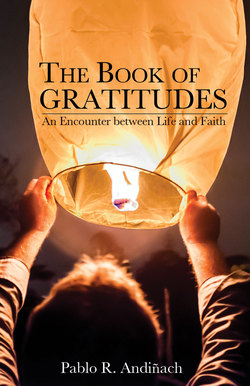Читать книгу The Book of Gratitudes - Pablo R. Andiñach - Страница 19
На сайте Литреса книга снята с продажи.
Albert Schweitzer or Reverence for Life
ОглавлениеHe was born where Germany and France meet, but he was French. As a young man he challenged thought with his new ideas about the life of Jesus and the ethical consequences of his preaching. He realized that being a Christian was not worth much if the love for one’s neighbor proclaimed in the Bible did not translate into a radical defense of life in all of its forms, especially, protecting human dignity.
He was a renowned theologian when at thirty years of age he decided to study medicine and surgery in order to devote his life to helping the poorest and most abused community of his time. Around 1913 he moved to Lambaréné, present-day Gabon, a nation on the African Atlantic. There he founded a hospital and cared for thousands of persons. Most of those who sought help suffered from leprosy and the “sleeping disease,” a deadly illness of that region. Albert treated them with affection, respected them and made them feel that they were important for just having been born. He not only cured with medicine, but with the profound conviction that each person is unique and precious in the eyes of God.
But being a doctor did not make him give up his other two passions. He was a musician and a talented organ player. He worked out a style for performing Bach’s pieces that is used and appreciated to this day. And he did not stop writing as well. His thoughts on philosophy and theology can be summarized by the title of one of his works: Reverence for Life. Schweitzer maintained that, from the tiny beetle to the imposing elephant, everyone was here with a purpose and their lives should be protected and revered. There could be no argument for destroying that which was sacred and imprinted on every being. If the life of a coleopteran was sacred, how could the life of each man and woman who inhabit this earth fail to be so?
Like all his generation, he experienced the tragedy of the two great world wars. He was opposed to them and devoted part of his life to proclaiming that armaments and the use of nuclear energy as a weapon of war were detestable and consumed the financial resources that should be applied to the development and wellbeing of the world’s population. Without wars and without weapons, there would be enough money for humanity to no longer suffer hunger, ignorance and violence. They did not listen to him, and we still continue to live with these scourges among us.
That he received the Nobel Peace Prize and that his nephew was Jean-Paul Sartre, simply add a few anecdotal facts to his life.
